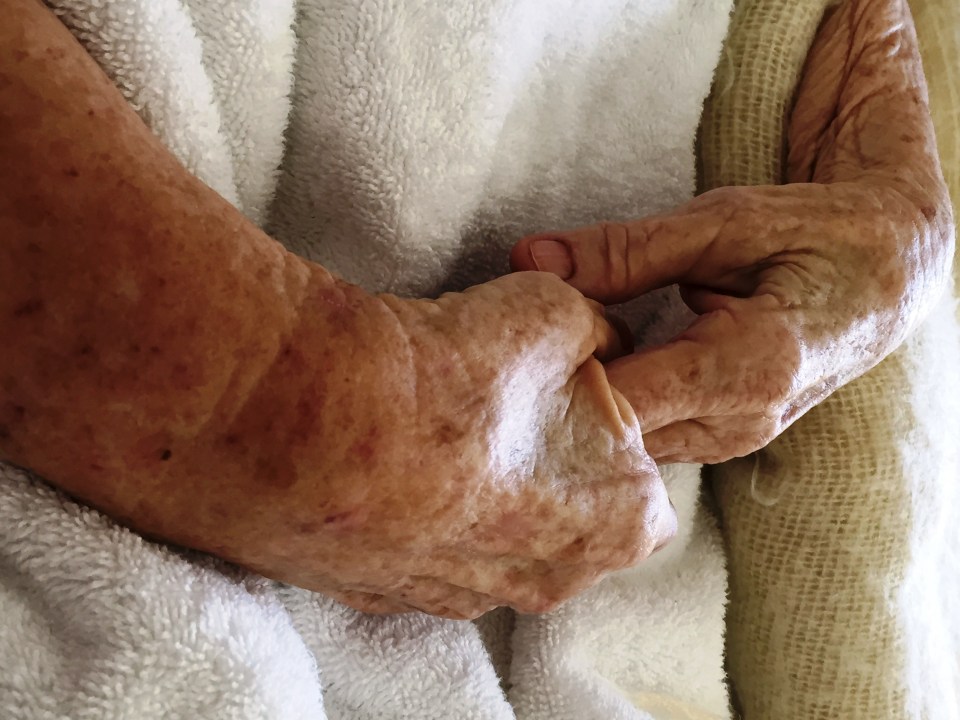Travels with my mother XXI: The Long Goodbye
This is the twenty-first in my series called Travels with my Mother. If you’ve not read the first in the series, you might wish to have a look at that one as it gives the context behind these posts.

Dementia is sometimes referred to as ‘the long goodbye.’ It is an apt description for the drawn out grief someone experiences as their loved one transforms from an adult who is competent in all the business of life, to a dependent who needs help with the simplest of actions. This is the process of dying, spread out over months and years.
Thankfully, Mum still knows me when I walk into her room and say my name. The smile that appears on her face lights her whole room. It could light a city. Often it is accompanied by a shriek of joy; sometimes a tear or two. Then she settles back into her bed or recliner, grasping my hand. Of late, my visits are mainly about watching Mum as she dozes. I hold her hand or her arm. When I get up to fetch her a drink, or speak to a staff member, and once again put my hand on hers, she gives a faint smile and murmurs, ‘That’s better. Softer.’ I’m not entirely sure what she means (is my touch softer than the nurses’? or is she expressing pleasure at any touch?) It hardly matters. I just know she enjoys me touching her and that’s what I take from the interchange.
It’s painful – agonising – to observe Mum struggle to sip and swallow a mouthful of water. Some day she can barely hold her head up. But she is calmer now than she was in recent months. I imagine that her inner self is giving up the struggle, relaxing into her helplessness. She is not happy, I’m sure. But neither, I think, is she actually unhappy. She is floating on a sea of something akin to oblivion, small wavelets of time lapping at her, rousing her occasionally to connect with whoever enters her room or speaks to her.
The small expressions of joy at seeing someone she knows and loves have to be enough; indicators that my visits mean something. This morning, as I left her side, I kissed her forehead and told her,’I love you, Mum.’ She smiled back and I knew she was trying to say ‘I love you, too.’ I knew it; even though her speech is now impaired so much that getting even the simplest sentence out is a struggle. Her face, her smile, told me the rest.
Related
You May Also Like
